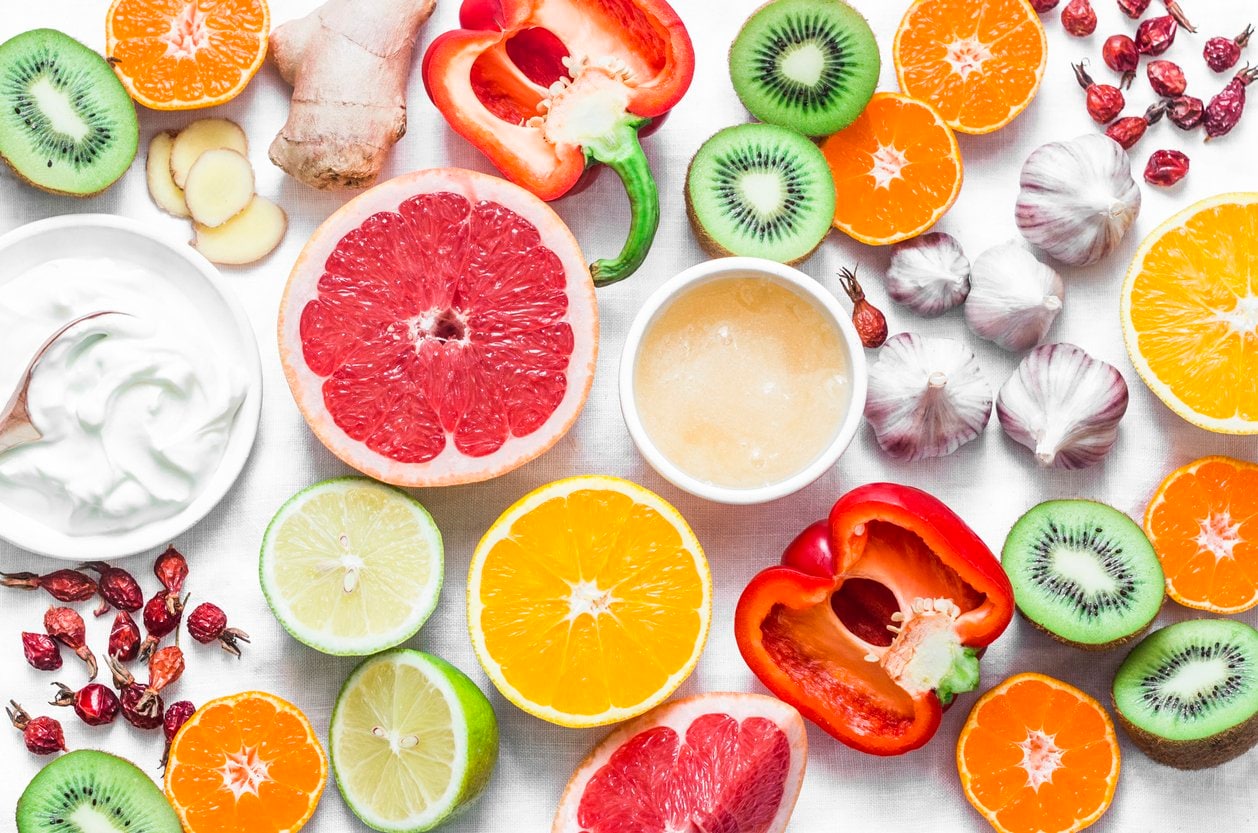Pregnancy and Nutrition

If you're expecting a baby you may have a lot of questions, especially about your changing body and what to expect along the way. As your pregnancy develops, you'll want to make sure you're nourishing your body and your growing baby with all the right vitamins and nutrients.
You've probably heard dozens of stories from friends and family about pregnancy cravings and what foods you should avoid, and it can all be overwhelming. For the most part, having a healthy and balanced diet shouldn't change much during pregnancy. Your calorie intake should increase by about 300-400 calories if you're carrying one baby, which is equivalent to one whole grain English muffin with butter and a half cup of fruit. Here's insight into where you should place special attention when eating for two (or more!).
Fish
While pregnant you should avoid fish with high amounts of mercury (swordfish, shark, marlin, king mackerel, etc.), but there are a variety of fishes that offer many nutritional benefits! Fish like salmon, sardines, and anchovies contain omega-3s, which help improve your baby's eyes and brain development. You should aim to eat about 6-ounces per week, and choose an option like light tuna as opposed to albacore as it contains less mercury, but if you don't like fish try adding flaxseed, walnuts, or cantaloupe into your diet.
Whole Grains
Whole grains contain naturally-occurring nutrients and are not processed. They contain a lot of fiber, which is helpful for making you regular and reducing hemorrhoids, a common problem during pregnancy. Try incorporating 5 - 7 servings a day of barley, brown rice, quinoa, and whole grain breads and cereals into your meal plans.
Dairy
Dairy is a great source of protein and calcium which are necessary during gestational development. You'll want to avoid dairy products that are unpasteurized. In the United States, most foods and cheeses are pasteurized, but if you're worried, stick to eating hard cheeses like cheddar, parmesan and swiss, and read the food labels of your favorite yogurts and ice creams to ensure they're not made with unpasteurized milks.
Water
During pregnancy your body uses more energy and has more needs than before. To produce enough fluids to keep you hydrated, produce more blood, and create amniotic fluids, you need to drink more water throughout the day. Aim for ten 8-ounce glasses a day, and you can substitute drinks like non-caffeinated herbal teas or smoothies to help you reach this goal.
Vitamins and Supplements
Because you're growing a baby, your body needs additional support to help ensure healthy fetal development. Folic acid can help to prevent spinal cord and brain abnormalities. Most pre-natal supplements will help provide your body with the right amount of folic acid it needs, but you should also add foods like spinach, oranges and beans to your diet.
To help your baby's bones grow strong, you'll also need to add calcium and vitamin D to your diet. Most supplements will have these vitamins too, but you should also add juice, milk, and eggs to help improve your intake. Additionally, during pregnancy your body needs more iron to help supply your baby with oxygen. Consider adding quick oats, and some meat like lean beef or turkey.
Don't be consumed with the idea of "eating for two" during your pregnancy. Try to maintain balance in your diet, and always speak to your physician or dietitian if you have any concerns, especially if you have gestational diabetes or another medical condition that may impact your personal dietary needs.